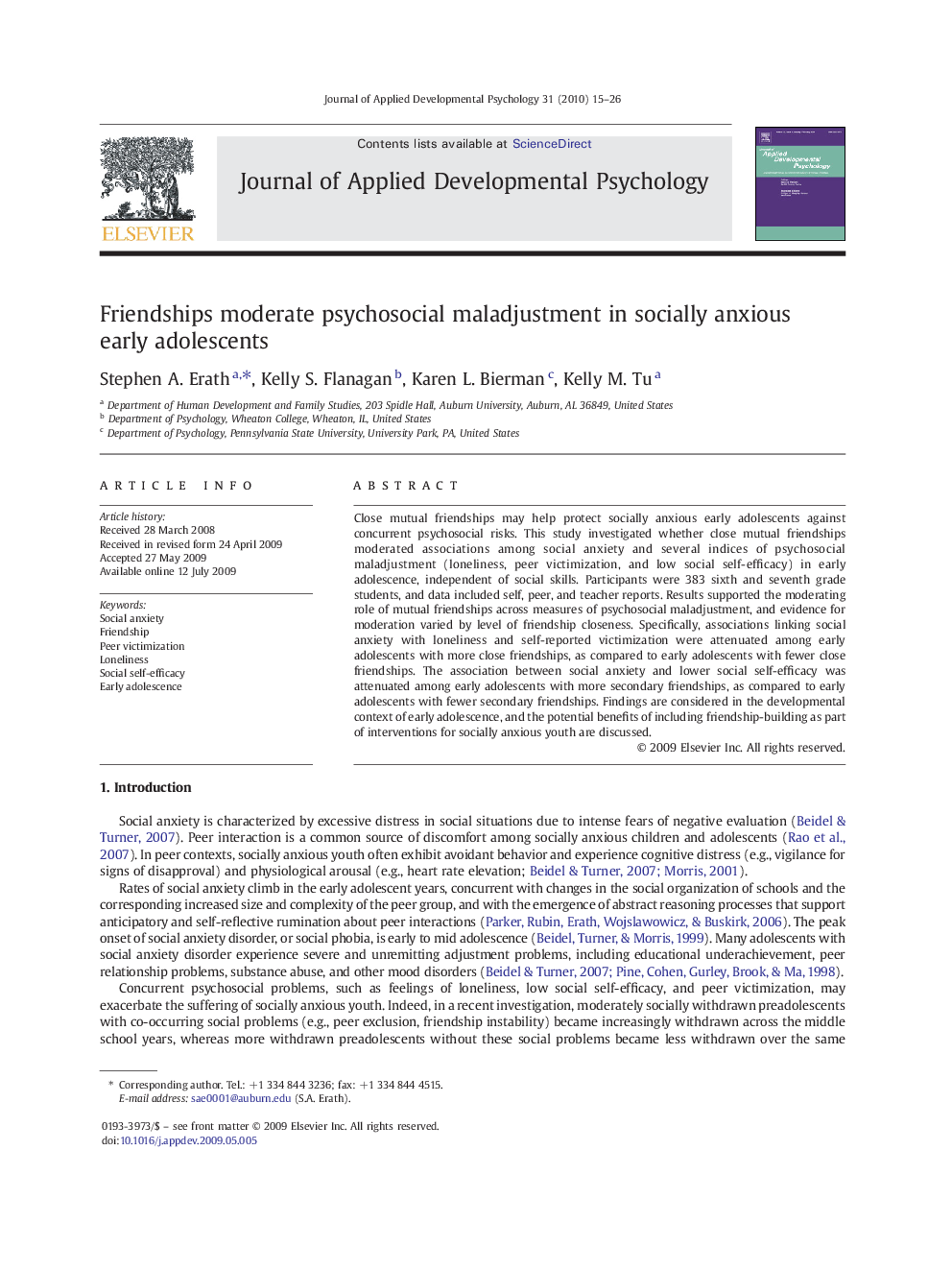| Article ID | Journal | Published Year | Pages | File Type |
|---|---|---|---|---|
| 360004 | Journal of Applied Developmental Psychology | 2010 | 12 Pages |
Close mutual friendships may help protect socially anxious early adolescents against concurrent psychosocial risks. This study investigated whether close mutual friendships moderated associations among social anxiety and several indices of psychosocial maladjustment (loneliness, peer victimization, and low social self-efficacy) in early adolescence, independent of social skills. Participants were 383 sixth and seventh grade students, and data included self, peer, and teacher reports. Results supported the moderating role of mutual friendships across measures of psychosocial maladjustment, and evidence for moderation varied by level of friendship closeness. Specifically, associations linking social anxiety with loneliness and self-reported victimization were attenuated among early adolescents with more close friendships, as compared to early adolescents with fewer close friendships. The association between social anxiety and lower social self-efficacy was attenuated among early adolescents with more secondary friendships, as compared to early adolescents with fewer secondary friendships. Findings are considered in the developmental context of early adolescence, and the potential benefits of including friendship-building as part of interventions for socially anxious youth are discussed.
